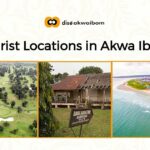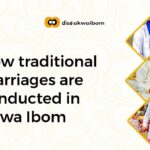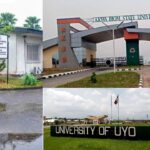If there was ever a group of Akwa Ibomites whose customs and way of life seem shrouded in mystery and draws much controversy, it is the Annang people. I am an Annang man, and as an Annang man born in Ibibio land, I have heard some of the most fascinating and many times false things being believed about the Annang people.
So, who are the Annang people?
The Anaang (also spelled Annang) are a Southern Nigerian ethnic group whose land is primarily within 8 of the present 31 local government areas in Akwa Ibom State: Abak, Essien Udim, Etim Ekpo, Ika, Ikot Ekpene, Obot Akara, Oruk Anam, Ukanafun in Akwa Ibom State,and 3 of the 17 Local government areas in Abia State: Ugwunagbo, Obi Ngwa,and Ukwa East of Abia State. They were formerly located in the former Abak and Ikot Ekpene Divisions of the Anaang Province, as well as part of the former Opobo Division of Uyo Province, in the former Eastern Region of Nigeria. The proper name for the Ika of Akwa Ibom is Ika-Annang. Based on 2018 estimates, there are about 4 million Annang speakers in Akwa Ibom,Abia state and over a million speakers living outside these states.
The Anaangs have a history and reputation for fearlessness and the ability of villages and clans to bind together to fight a common enemy. This is perhaps why they were able to thrive living so close to the Aro Confederacy‘s center, Arochukwu with its famed Ibini Ukpabi oracle. A particular interesting war group, or “Warrior cult”, was the famous Oko warriors. This war group was highly functional in the 1950s. These warriors were considered invulnerable to penetration of knives, spears, and arrows. In various instances sharp machetes were tested on the body parts of members.

Parts of the Annang language may be intelligible to speakers of Efik, Ibibio, Oron, Eket (also known as Ekid) of the Old Calabar Kingdom. Though the Anaang speech pattern was not written down, linguists have now produced an orthography of the language which makes it possible to produce written materials in the language (Idem-Agozino & Udondata, 2001). In Annang dialect, the word “ilung”means village while in Ibibio it is called ” Idung”. The major linguistic difference between the Annang and other dialects is the predominant use of the letter “L” in place of “r” or “d”,and the use of “g” in place of “w”.The Annang dialect sounds hard but it is a dialect of freewill,ie the words roll out easily from your tongue than the Ibibio.
According to oral tradition, which is a form of human communication where knowledge, art, ideas and cultural material is received, preserved and transmitted orally from one generation to another, the Annang people have occupied their land in the coastal Southeastern Nigeria for thousands of years.
Thus making it a fact to be considered when it is said by some Anaangs that they have their origins in Jewish tribes from Egypt and settled in Ghana before arriving in the coastal Southeastern Nigeria and Southwestern Cameroon.
Related to both the Efiks and the Ibibios, it is said that the migration of the Annang people brought them to live among the Twi of Ghana where the name Anaang means “fourth son”.
And from Ghana, they moved eastward into present-day Cameroon. Upon getting to the highlands of Cameroon, they broke off but later arrived at same territory in present-day Akwa Ibom.
Distinct for the value they have in the ability to speak well, the use of proverbs is highly desirable, especially among the leaders.
So desirable it is that the American anthropologist, Peter Farb, stated that the name “Anaang” among this group means ‘they who speak well’. And as a matter of traditional fact, an individual who has the gift of eloquent speech is often complimented as Akwo Anaang meaning the singer of Anaang.
There is so much to learn about the Annang people, so much so that we have barely scratched the surface. Maybe we will get to tell you more soon.
Lastly, please, just know, against popular belief, Annang people are not cannibals.
Until next time.
References: Wikipedia, Pulse.ng






